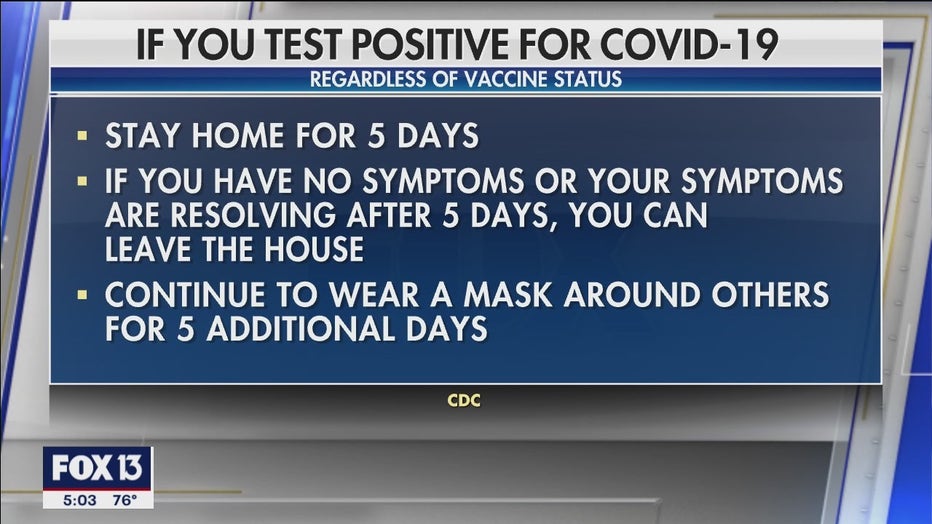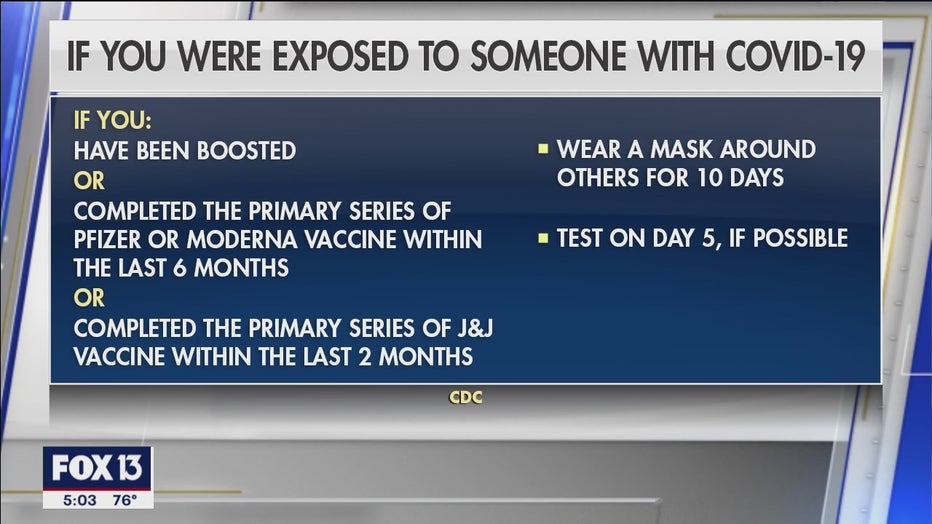The CDC's new quarantine guidelines, simplified

CDC's new isolation guidelines for COVID exposure
Dr. Michael Teng at the University of South Florida said this about how to take the new guidance: ?It is really essential to understand that even though the CDC is letting you out of quarantine or isolation, they still think you?re going to be infectious and can transmit the virus."
TAMPA, Fla. - Significant changes have been made to the CDC's isolation guidelines when it comes to COVID-19.
Dr. Michael Teng at the University of South Florida said this about how to take the new guidance: "It is really essential to understand that even though the CDC is letting you out of quarantine or isolation, they still think you’re going to be infectious and can transmit the virus."
The CDC says people are especially contagious two days before and three days after symptoms appear, which means wearing an effective mask is crucial to preventing the spread.
RELATED: CDC shortens COVID-19 quarantine recommendation to 5 days
The new recommendations vary, depending on vaccination status. Here's what they recommend:
Regardless of vaccination status:
Anyone who tests positive should isolate for five days, rather than the previous recommendation of 10.
When symptoms go away, wear a mask around others for five days.

RELATED: Florida sees spike in COVID-19 cases, but hospitals remain OK
Fully vaccinated and/or boosted:
For those who just finished a 2-dose series of Pfizer or Moderna's vaccine, or those who have had a booster:
If you're exposed to someone who tests positive for COVID-19, wear a mask around others for 10 days.
Take a test after day five.

Unvaccinated:
For anyone who has not been vaccinated or had their shots more than six months ago:
If you're exposed to someone who tests positive for COVID-19, isolate for five days and wear a mask for another five.
What's behind the changes?
The move is likely to help ease the strain on hospital systems, schools, and other industries like airlines, which recently had to suspend thousands of flights due in part to COVID-19 related worker shortages.
"I think there's a little more political pressure to limit quarantine or isolation times," said Dr. Teng.
Should be viewed as a milestone in dealing with the ongoing pandemic? Perhaps, although if the pandemic has proved anything, it's that it can be unpredictable.
"Every time we start doing that, something else happens, we have another variant, another wave," Dr. Teng said.

